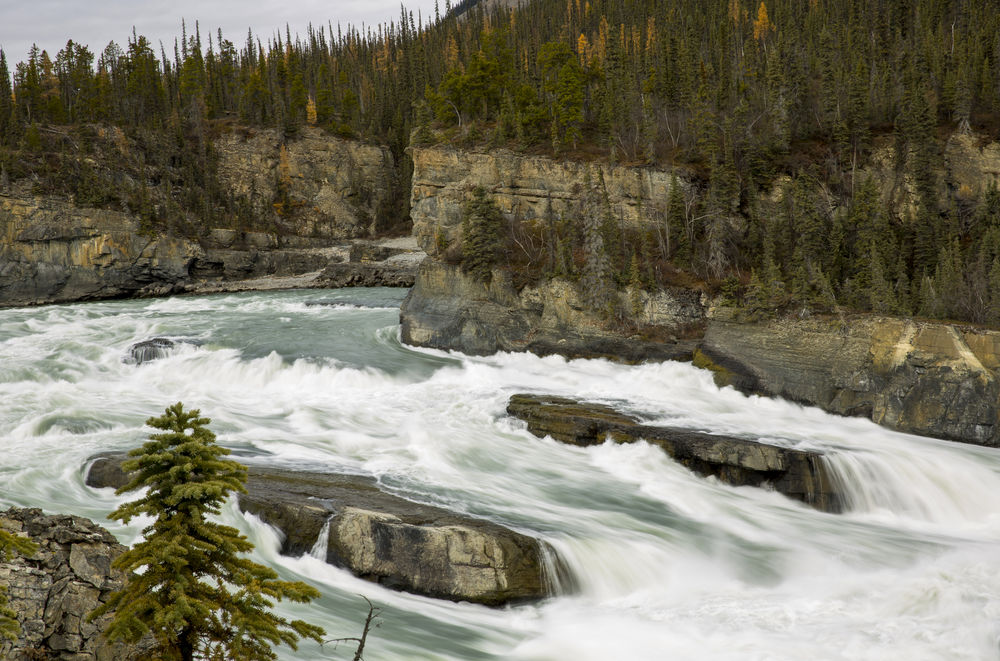Canada Commits to CAD$800 Million to Advance Indigenous-led Conservation
December 7, 2022 – Montréal, Canada. At the fifteenth Conference of Parties to the Convention on Biological Diversity in Montréal, Canada, the Government of Canada announced a commitment of $800 million (CAD) to expand Indigenous-led conservation. The funding will support new and enhanced protections of lands and ocean, expand the Indigenous Guardian and stewardship programs, and catalyze associated investments in Indigenous communities.
During the announcement Prime Minister Trudeau was joined by representatives from Indigenous leadership, who – from coast to coast to coast – have conserved the biodiversity in their waters and on land for millennia, using traditional knowledge passed down through generations.
“Our government is here as a partner. And today, we took an important step forward – together – to deliver a vision of conservation that has partnership and reconciliation at its core. I’m looking forward to our shared work to deliver results for communities and for the nature that sustains us all,” said The Rt. Hon. Justin Trudeau, Prime Minister of Canada

The new funding will support large-scale conservation that applies the project finance for permanence model – also known as a PFP. This innovative financing tool secures long-term, durable investment in conservation initiatives by tying full and sustained funding to measurable goals, including social and environmental gains, and continuing the financing only if those benchmarks are met.
“Today’s announcement is a clear signal that the Government of Canada is prepared to walk alongside Inuit to establish a permanent regional conservation model that prioritizes Inuit governance and sustained direct participation in managing our homelands,” said Levi Barnabas, Qikiqtani Inuit Association, Acting President.
Canada was a leader in establishing the PFP model, beginning nearly two decades ago with the Great Bear Rainforest project, which secures 7.6 million hectares of Pacific rainforest and supports First Nation-led economic enterprises tied to the conservation of their lands. Since this time, the PFP model has been adopted in Costa Rica, Bhutan, Brazil, Peru, and most recently in Colombia, conserving over 120 million hectares and supporting local communities.
“We are pleased that our on-going stewardship of our globally significant lands and waters is being recognized by Canada and international and Canadian philanthropic partners of Project Finance for Permanence,” said Mushkegowuk Council Grand Chief Linklater, the first woman to elected to the position.
In addition to conservation gains, the four Indigenous-led PFP projects that are currently in development in Canada will help advance reconciliation commitments, support regional job creation and economic development goals, while helping to enhance new futures for communities across the country.
“Our success in the Great Bear Rainforest has proven that Indigenous-led conservation works for nature and for people, and the extension of this PFP model in the Great Bear Sea will bring our vision full circle by linking management and stewardship across land and sea. This PFP is about more than funding, it’s about a new model of conservation and sustainability founded on principles of stewardship and collaborative governance,” said Dallas Smith, President of Nanwakolas Council. “We’d like to thank the Prime Minister for his commitment to bring Canada to the table alongside our philanthropic partners, so we can deliver this new PFP by 2025.”
The impact of this announcement goes beyond Canada, as this commitment can help close the financing gap between what is needed to secure biodiversity and climate change targets and what’s currently invested; implement the 2030 targets of the proposed global biodiversity framework, where collaboration with Indigenous government is essential for success; and set the stage for other large-scale initiatives over time, further advancing a model of Indigenous-led conservation that can serve as an example for the world.
“Canada has long recognized that partnerships with Indigenous Peoples are essential for sustaining biodiversity and protecting 30 per cent of lands by 2030. The lack of sustained funding for these efforts has been the single biggest barrier to achieving those goals,” said Valérie Courtois, the Director of the Indigenous Leadership Initiative “Today’s announcement shows that the Government of Canada is embracing innovative tools to secure funding — funding not only for establishing Indigenous Protected and Conserved Areas, but also for stewarding those lands into the future and exploring whole-of-government approaches that can sustain these efforts over time.”
In support of the announcement, Enduring Earth and partners are working to build a global PFP community that today comprises 11 geographies, including Belize, Canada, Colombia, Kenya, Mongolia, and Namibia, through an approach that honors the voices, vision, and long-term stewardship of Indigenous nations Working with governments, local communities, Indigenous peoples, and private and public funders, this initiative seeks to support a healthy planet and provide long- term financing for conservation, economic diversification, and community prosperity.
Photo credit: Nahanni National Park in Canada’s Northwest Territories, Canada (c) The Pew Charitable Trusts
